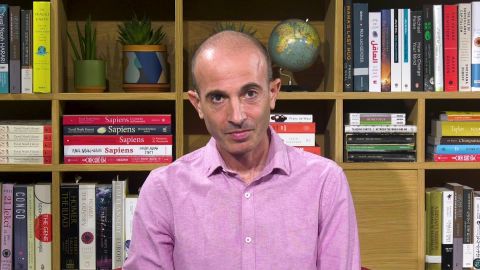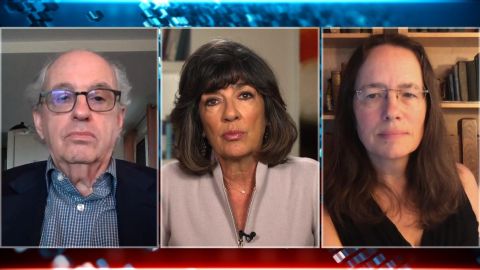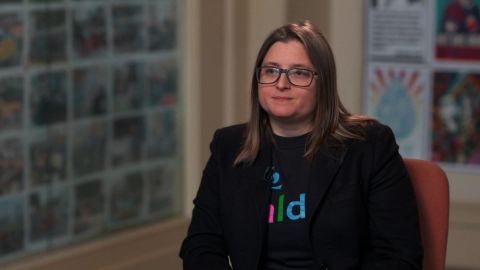Read Transcript EXPAND
CHRISTIANE AMANPOUR: What made you want to put this into, for want of a better word, cartoon form. It is a very deep study of human history?
YUVAL NOAH HARARI, AUTHOR, “SAPIENS”: Well, the main idea is to bring science to more people, bring science and history also to people who don’t normally read science books. And it was actually also an opportunity for me to break the academic conventions and to experiment with different ways of telling history, the history of our species. So, really, I think it was the most fun project I ever worked on, you know, like writing suddenly detective stories and action hero movies and things like that. So, I really hope that people will enjoy it as much as I and the team enjoyed working on it.
AMANPOUR: Let me ask you something, though, we’re in the midst of a pandemic, as we all know, how does this book let young people or others get to know potentially the origins of this pandemic?
HARARI: There is a section that discusses the history of infectious diseases and pandemics. Many people don’t realize it maybe, but actually in the stone age, humanity did not suffer from pandemics at all. Pandemics started only with the agricultural revolution. As long as people lived as more mobile bands of hunters and gatherers, they had less contact, less contact with animals, they had no domesticated animals and most of our infectious diseases they come from pigs and chickens and cows that we domesticated. And even if some wandering band of hunters or gatherers, somebody caught a virus from a wild bat, that it could infect maybe 10 people, 20 people, not much more than that, and it will be over. Only once people started to live in villages and towns and cities, crowded together, with all their animals, all their sewage systems, and garbage heaps, and connected to one another with trade networks, this is when we begin to see devastating epidemics. So, this is one of the main reasons why for most people the agricultural revolution made life worse and not better.
About This Episode EXPAND
Christiane speaks with Norm Ornstein and Heather Cox Richardson about election day. She also speaks with Yuval Noah Harari about how our species is faring during its current existential crisis. Hari Sreenivasan speaks with immigration attorney Bridget Cambria about why she believes the asylum system must change.
LEARN MORE


